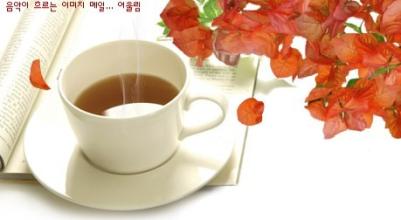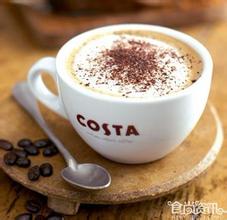Introduction of Coffee Flavor description treatment in Atlanta Manor, Jamaica
A closer look at the myth of Blue Mountain coffee is necessary because images of the past and reality of today often do not coincide. In 1725 Sir Nicholas Lawes brought the first Blue Mountain coffee seeds from Martinique to Jamaica, where they were planted in St Andrew. Today St. Andrew's is still one of the top three growing regions for Blue Mountain coffee, the other two being Portland and St. Thomas. Thomas) producing area. Within eight years, Jamaica exported more than 375 tons of pure coffee. Coffee production peaked in 1932, harvesting more than 15000 tons of coffee.
But by 1948, coffee quality had declined and Canadian buyers refused to renew the contract, so the Jamaica government set up the Coffee Industry Council to save the fate of premium coffee. By 1969, the situation had improved, as Japanese loans had improved the quality of production and thus secured the market. Even in 1969, Japanese coffee drinkers were willing to pay insurance for the coffee, but today it has reached the point of being a cult favorite.
By 1981, about 1500 hectares of land had been cleared for coffee in Jamaica, followed by investment in another 6000 hectares. In fact, today's Blue Mountain region is a small area of only 6000 hectares, and not all the coffee labeled "Blue Mountain" can be grown there. An additional 12000 hectares are devoted to growing two other types of coffee (non-Blue Mountain coffee): High Mountain Supreme and Jamaica Prime Washed Jamaican.
Blue Mountain Coffee, however, is one of those coffee retailers that value credibility and want to stock some coffee anyway. A leading British retailer says he will continue to sell Blue Mountain coffee all year round regardless of price because he has many customers who only recognize Blue Mountain.
Today, 90% of post-harvest Blue Mountain coffee is purchased by Japanese. In 1992, Jamaica sold 688 tons of Blue Mountain coffee to Japan, 75 tons to the United States and 59 tons to Britain. Blue Mountain coffee is now in short supply, regardless of price, because the rest of the world can only get 10 percent of its production. For many years Langford Brothers was the sole supplier in Britain. The Edmonds Group was later supplied by Salda Foods of Jamaica.
Langford Brothers is a licensed Jamaica Blue Mountain coffee brand
Blue Mountain coffee differs from other coffees in transportation in that it is transported in 70 kg barrels, which are copies of Bonifieur barrels produced in Guadeloupe last century. These barrels were originally used to carry flour from England to Jamaica, usually bearing the brand name and manufacturer's name. The Coffee Industry Council issues certificates for all pure Jamaica coffee and stamps it before export.

Important Notice :
前街咖啡 FrontStreet Coffee has moved to new addredd:
FrontStreet Coffee Address: 315,Donghua East Road,GuangZhou
Tel:020 38364473
- Prev

Introduction to the regional treatment method for the characteristics of coffee varieties in San Pedro Manor, Puerto Rico
The origin of coffee in Puerto Rico: the best coffee in Puerto Rico is YaucoSelecto, which means Selecto. Grand Larez and Yaoke coffee (GrandLares-Yauco) are produced in the southwest of the island, while Larez coffee is produced in the south-central part of the island. Yaocote's coffee is grown only on three farms in the southwest of the island. It has a strong fragrance and a long aftertaste.
- Next

Introduction to the production area of Grinding scale by describing the characteristics and Flavor of Silver Mountain Manor in Jamaica
It is necessary to take a closer look at the myth of Blue Mountain Coffee, because the image of the past is often inconsistent with the reality of today. In 1725, Sir Sir Nicholas Lawes brought the first Blue Mountain Coffee species from Martinique to Jamaica and planted them in the St.Andrew area. Today, the producing area of St. Andrew is still the Blue Mountains.
Related
- Does Rose Summer choose Blue, Green or Red? Detailed explanation of Rose Summer Coffee plots and Classification in Panamanian Jade Manor
- What is the difference between the origin, producing area, processing plant, cooperative and manor of coffee beans?
- How fine does the espresso powder fit? how to grind the espresso?
- Sca coffee roasting degree color card coffee roasting degree 8 roasting color values what do you mean?
- The practice of lattes: how to make lattes at home
- Introduction to Indonesian Fine Coffee beans-- Java Coffee producing area of Indonesian Arabica Coffee
- How much will the flavor of light and medium roasted rose summer be expressed? What baking level is rose summer suitable for?
- Introduction to the characteristics of washing, sun-drying or wet-planing coffee commonly used in Mantenin, Indonesia
- Price characteristics of Arabica Coffee Bean Starbucks introduction to Manning Coffee Bean Taste producing area Variety Manor
- What is the authentic Yega flavor? What are the flavor characteristics of the really excellent Yejasuffi coffee beans?

